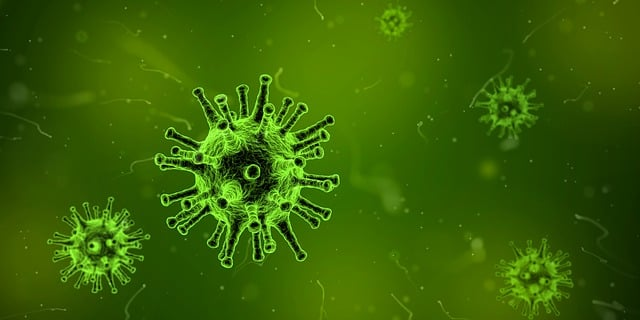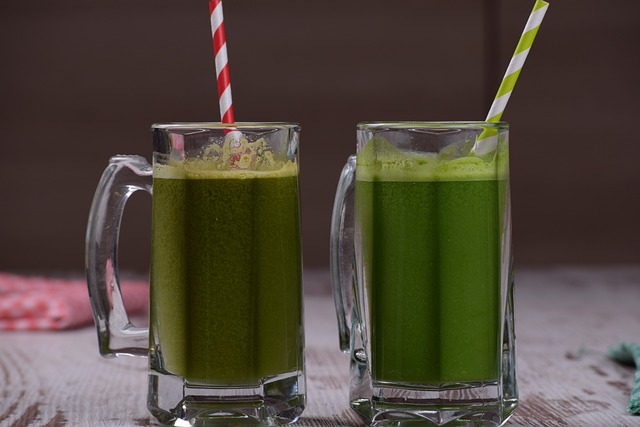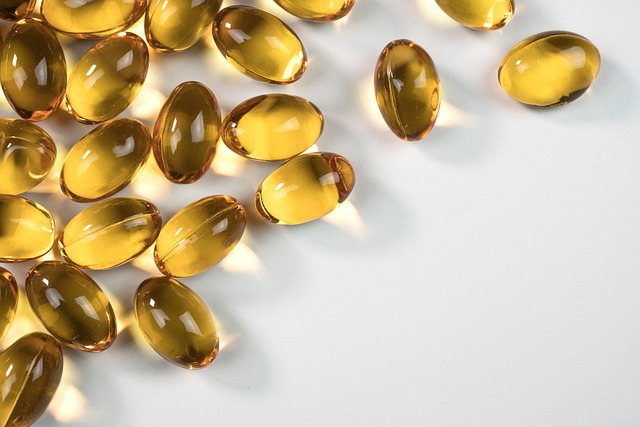
How ZMA Can Boost Your Immune System
Wondering how to boost your immune defences and fight against illness? Discover the science of ZMA and how it can help your immune system.

Today, we’re turning our attention to a mineral that’s often overlooked but absolutely crucial for men’s health. Yes, that’s right, we’re talking about zinc.
This mighty mineral plays a vital role in everything from immune function to protein synthesis, wound healing, testosterone production and DNA synthesis.
But the question is: Are you paying enough attention to it in your daily routine?

Let’s uncover why zinc is an essential player in maintaining your prime and why it deserves a starring role in your health regimen.
Before we dive deeper, it’s crucial to get a handle on what zinc is and the vital role it plays in your body. To give you a clearer picture, we’re answering some frequently asked questions about zinc.

Absolutely, but moderation is key. While zinc is vital for your health, too much can be harmful. As long as you stick to the recommended daily amount, you will have no problems, only benefits!
Well, let’s clear up a common misconception first – zinc isn’t a vitamin; it’s a mineral. But that doesn’t make it any less important.
From aiding muscle repair post-workout to supporting your sexual health, zinc is involved in many critical bodily processes, and is vital to men, as you’ll find out in the rest of this guide.
Zinc deficiency can creep up on you. It may show up as a loss of appetite, a weakened immune system, slower wound healing, or even changes in your taste or smell. Even mood changes and difficulty focusing can be red flags.
Zinc deficiency can also mean low testosterone levels in men too, which can have all kinds of effects on the male body as it ages.
Zinc is abundant in a variety of foods. You can find it in good amounts in meat, shellfish, legumes like lentils and chickpeas, seeds, nuts, dairy, eggs, and whole grains.
If you are a vegan or vegetarian, it’s important to consider how much zinc you are consuming, the same can be said for men as they age. If you fall into this bracket, you should consider zinc supplements to aid consumption.
So, there you have it. Zinc might be the missing ingredient in your quest to stay in your prime. As we go along, we’ll delve deeper into how this vital mineral can help maintain your StayPrime status.
Let’s dive in…

Now that we’ve nailed the basics, let’s delve into one of the key benefits of zinc for men – its role in testosterone production.
Testosterone, as you might be aware, is the primary male sex hormone. It’s integral to your overall health, having a hand in everything from muscle mass and bone density to your overall mood and libido.
But where does zinc fit into the picture?
Absolutely! Zinc is a vital player when it comes to regulating your testosterone levels.
According to a study published in the journal ‘Nutrition’ on PubMed, zinc restriction was observed to negatively impact testosterone levels in healthy men.
Zinc plays a significant role in various bodily functions, including the production of testosterone. This mineral acts on a cellular level in the testes to stimulate the production of testosterone.
In other words, it encourages your body to produce and maintain appropriate levels of this crucial hormone.

Simply put, a zinc deficiency can lead to a drop in testosterone, affecting various aspects of your health. Here are some potential adverse effects:
By ensuring you’re getting enough zinc, either through your diet or supplements, you can help your body maintain healthy testosterone levels. This not only helps you achieve your physical health goals but also supports your sexual health and overall well-being.

So, when you’re planning your meals or considering supplements, keep zinc in mind.
Zinc and testosterone work in tandem to keep you at your best, and who wouldn’t want that?
Beyond testosterone regulation, zinc stands tall as a guardian of your immune system.
Maintaining your prime isn’t just about preserving muscle mass and energy levels – it’s also about staying resilient against colds and infections.

Zinc wears many hats within your immune system. It serves as a catalyst for enzymes, supports the development and function of numerous immune cells, and upholds the integrity of skin and mucosal membranes, which serve as your body’s first line of defence against harmful intruders.
Research, like this study from the ‘American Journal of Clinical Nutrition’, suggests that zinc can help to decrease the severity and duration of common cold symptoms. Furthermore, it’s been indicated that zinc might help prevent respiratory tract infections, particularly in older individuals.

If your zinc levels are running low, your immune response might take a hit, leaving you more vulnerable to infections. Here’s what you might experience if your immune health is suffering due to inadequate zinc:
By getting your fair share of zinc, you can bolster your immune system and help it to operate at peak performance.
Because let’s face it, a robust immune system is a non-negotiable when it comes to staying in your prime.

If you’re striving to stay in your prime, you can’t afford to overlook the role of metabolism.
It’s your body’s engine, powering everything from your daily jog to your ability to recover after a hard workout.
And guess what?
Zinc is a critical component in keeping this engine running smoothly.
Zinc is involved in numerous metabolic processes, helping your body break down nutrients, maintain a healthy weight, and recover from exercise. Here are a few ways your metabolism might be affected if your zinc levels aren’t up to scratch:

Zinc is integral to the function of several enzymes that drive metabolic reactions in your body. It also plays a key role in protein synthesis, helping to repair and build new muscles after a workout.
There’s some evidence to suggest that it can. Zinc plays a role in regulating your appetite and improving your body’s insulin sensitivity, which could potentially aid in weight management. But remember, it’s not a silver bullet – a balanced diet and regular exercise are vital too.

Let’s shift our focus to an aspect of health that’s often overlooked when it comes to men’s wellness – skin health.
As the largest organ of your body, your skin deserves some TLC. And guess who’s ready to help? You’ve got it – it’s zinc.
Zinc is a workhorse when it comes to maintaining skin integrity and speeding up wound healing. Inadequate levels of zinc can lead to several skin issues, such as:
Zinc aids in maintaining skin integrity by supporting the structure of skin proteins, such as collagen and elastin. It also plays a role in inflammatory response, helping to manage conditions like acne or dermatitis.
According to a study in ‘Dermatology Research and Practice’, zinc can help reduce the severity and inflammation of acne.
Yes, it can! Zinc is vital for collagen synthesis and immune function, both of which are crucial for wound healing. A study published in ‘International Wound Journal’ highlighted the importance of zinc in the wound healing process.

Let’s talk about zinc’s role in maintaining brain health. Your brain is your command centre, after all. It’s in charge of everything from lifting weights at the gym to remembering your wedding anniversary.
So, how does zinc fit into the picture?
Zinc is a vital participant in brain function, playing a key role in processes like neurotransmission and cognition. If your zinc levels aren’t up to snuff, you might find yourself experiencing:
Zinc is heavily involved in brain function. It’s present in high concentrations in the brain, particularly in the hippocampus, which is associated with memory and learning functions.
According to a study in ‘Frontiers in Neuroscience’, zinc deficiency can lead to alterations in brain function, affecting cognition and mood.
There’s good news on this front. Zinc has been linked to mood regulation and has a part to play in the body’s response to stress. Some research even suggests that adequate zinc levels has a positive effect on depression and psychosis.

As we’ve explored, zinc is vital for various aspects of men’s health. It supports everything from your immune system to your brain function.
But the question is, are you getting enough of it in your diet?
Certain groups of people are more likely to suffer from zinc deficiency.
These include vegetarians and vegans, as plant foods are not as rich in zinc as animal products, and the zinc they do contain is less easily absorbed by the body.
Older men are also at risk, as the ability to absorb zinc can decrease with age.

To ensure you’re getting enough, it’s important to include good sources of zinc in your diet. Foods such as oysters, red meat, poultry, beans, nuts, and whole grains are all rich in zinc. Even dairy products, often overlooked, provide a decent amount of this vital mineral.
This isn’t always possible, and some foods, like red meat, can come with their own health issues when over-consumed. That’s why, zinc supplements are a great option.
In short, yes. Regular zinc intake can support a healthy immune system, contribute to optimal testosterone levels, and help treat and prevent conditions related to zinc deficiency.
When considering a supplement, look for one that provides zinc in a form that’s easy to absorb, such as zinc citrate or zinc gluconate. Some supplements also combine zinc with other nutrients to enhance absorption.
As you get older, maintaining your zinc intake becomes even more important, as your body’s ability to absorb zinc can decrease. So, whether it’s through your diet or through supplementation, make sure zinc is on your radar.

Remember, zinc is just one ingredient in the recipe for health – and when it comes to supplementation, you should look for a solution that has been created with YOU in mind and will help you a variety of ways.
After all, you don’t want to end up taking 10 different pills every morning!
A balanced diet, regular exercise, and good sleep are all key to helping you extend your prime too.
Remember, the biggest positive changes you can make in your life are habits – small things that you do every single day – like taking a supplement, walking more often, getting deeper sleep, working out, socialising, challenging your mind, and so on.

There you have it – the all-encompassing lowdown on zinc and its pivotal role in men’s health. It’s clear that this humble mineral, often overshadowed by more well-known nutrients, is indeed an unsung hero when it comes to keeping you in your prime.
From powering up your testosterone levels and reinforcing your immune system to stoking the fires of your metabolism, zinc proves itself to be a potent ally. Not to mention its important roles in skin health and brain function, areas that are crucial for both looking and feeling your best.
Whether you’re chowing down on zinc-rich foods or considering zinc supplementation, it’s clear that this mineral deserves a place in your health strategy. As you age, remember that maintaining your zinc intake isn’t just good for you – it’s essential.

But let’s not forget, staying in your prime isn’t about isolating one aspect of your health. It’s about a balanced approach that incorporates a healthy diet, regular exercise, and good rest.
So, whether you’re in your 30s, 40s, 50s, or beyond, remember to give zinc the attention it deserves. Your future self will thank you, and so will those who matter most!
Stay tuned for more health-focused content and tips from StayPrime. Here’s to living your best life, in your prime, for as long as possible!


Wondering how to boost your immune defences and fight against illness? Discover the science of ZMA and how it can help your immune system.

Learn how ZMA can transform your muscle recovery and athletic performance, allowing you to reach your health goals

Studies have shown that testosterone levels are falling. Read this to find out why and what can be done to fix it.

Discover how Vitamin B6 reduces fatigue through energy metabolism, with key facts and intake recommendations.

Complete the form NOW to receive the free ebook and take on the challenge.